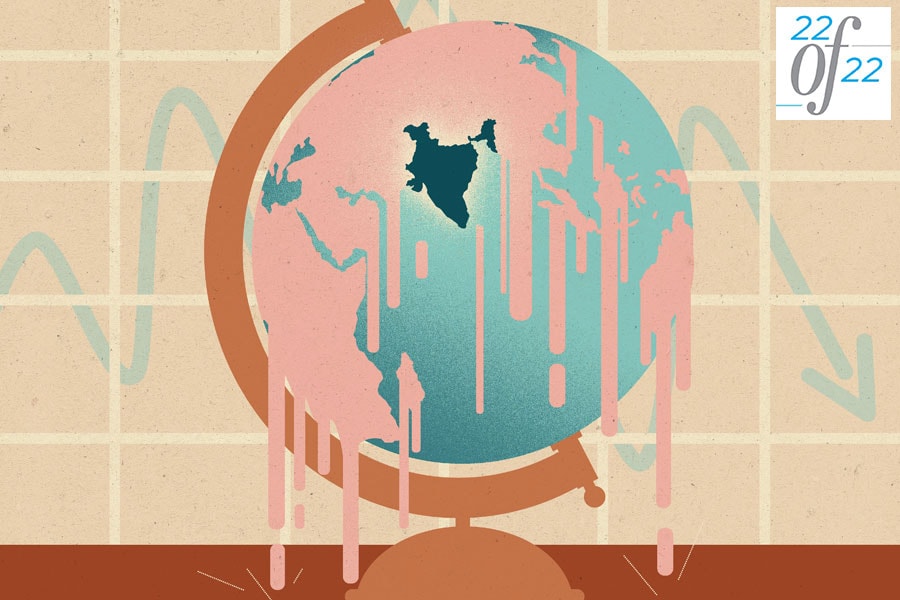
2023 and the game of taming recession
Bringing inflation and a global slowdown to heel will be in focus in the new year
 Global agencies expect countries representing a third of the world output to be in recession in 2023. Illustration credit: Chaitanya Surpur
Global agencies expect countries representing a third of the world output to be in recession in 2023. Illustration credit: Chaitanya Surpur
Recently, Fitch Ratings in its latest Global Economic Outlook report, reduced its world growth forecast for 2023 to 1.4 percent versus 1.7 percent in September. “Taming inflation is proving to be harder than expected as price pressures broaden and become more entrenched.
Central bankers are having to take the gloves off. That won’t be good for growth,” says Brian Coulton, chief economist, Fitch Ratings.
Global agencies expect countries representing a third of the world output to be in recession in 2023. The concerns stem from the colliding pressures from inflation, the war-driven energy and food crisis, and higher interest rates. The International Monetary Fund sees these worries to be pushing the world to the brink of recession.
The three largest economies—the United States, China, and the Eurozone—are likely to continue to slide, the International Monetary Fund highlighted in October. “The worst is yet to come, and for many people, 2023 will feel like a recession,” the fund said.
In its December report, Fitch decreased its China growth forecast for 2023 to 4.1 percent from 4.5 percent as the Chinese property market continues to languish. “It looks like a comprehensive economic blow-up in China of not just the housing market but also its financial system,” Saurabh Mukherjea, founder and CIO, Marcellus Investment Managers told Forbes India in an interview earlier.









